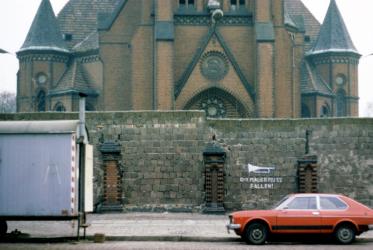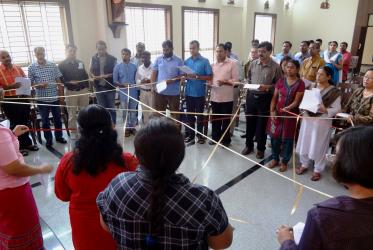Displaying 81 - 100 of 125
26 January 2016
WCC/UN conference calls for coordinated action on refugee crisis
20 January 2016
Edward Dommen receives Colladon award for A Peaceable Economy
14 December 2015
UN Climate summit results vital for world’s future
26 November 2015
Land rights focus of panel discussion
17 November 2015
WCC dedicates prayer service to Sustainable Development Goals
23 September 2015
The Berlin Wall: looking back, looking forward
07 November 2014
Indian churches reflect on the WCC assembly theme
26 August 2013
WCC calls churches to speak against corruption
20 August 2013
WCC delivers climate change statement at COP 18
07 December 2012
Just peace, prayer and a common witness keep church relevant
22 December 2011
Durban outcome is not enough, says WCC
13 December 2011
Religious voices advocate for climate justice at Durban
28 November 2011
Before Durban climate talks, Brazilian ecumenists think about Rio+20
23 November 2011













